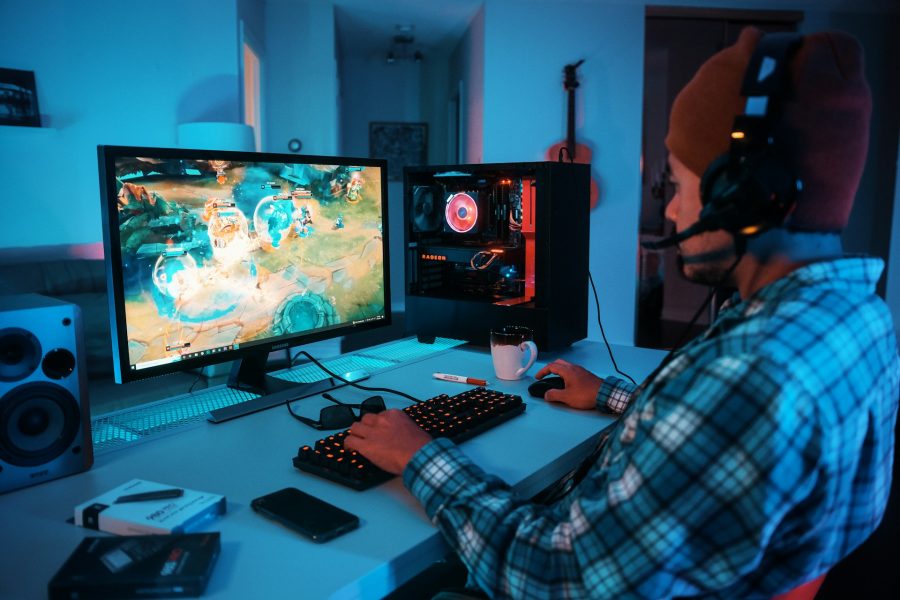Online games demand consistency, precision, and the ability to adapt. With regular updates and an ever-growing pool of skilled participants, maintaining a high standard of performance requires more than fast hands or a reliable connection. Players who perform well over time develop a well-rounded system, one that blends strategy, reflection, physical awareness, and effective gaming habits. This article explores how to preserve that competitive edge across different titles and changing formats.
Rethinking What Makes a Strong Player
Competitiveness in online games includes technical ability, but that is only part of it. Players who thrive over time also read situations well, plan ahead, and make informed choices under pressure. Knowing how to use in-game tools is important, but equally vital is recognizing when to shift strategy, wait for the right moment, or coordinate with others.
Games continue to introduce new features, mechanics, and balance updates. Players who succeed long-term are those who pay attention to changes and adjust accordingly. Even small updates can influence how a match unfolds. Reading patterns, testing options, and staying open to adjustment keep players competitive.
This mindset of preparation and adaptability also shows up in online competitions outside gaming. Whether it’s a timed contest or a live-streamed draw, results often favor those who follow instructions closely, recognize patterns, and act with purpose. Participants typically sign up, choose a prize, and either purchase a ticket or use a free-entry method. While formats vary, the structure rewards consistency and smart decision-making. For more information, visit BestCompetitions. Just like in online games, those who stay alert, read the situation clearly, and make informed moves are the ones most likely to succeed.
Practicing With Intention
Spending long hours playing does not always lead to improvement. Focused sessions built around clear goals lead to stronger progress. For example, aim training software, role-specific drills, or short review periods between matches often lead to greater improvements than repeating the same mistakes in dozens of matches.
One common method is to record gameplay, watch it back, and identify where decisions could have been made differently. Whether it is misjudging timing, ignoring sound cues, or choosing a poor angle, many errors repeat themselves until they are spotted and corrected. Routine reflection supports smarter play over time.
Creating Sustainable Physical Habits
Endurance and reaction time are closely linked with physical condition. Extended screen time, poor posture, and fatigue contribute to a drop in accuracy and focus. Players who maintain consistent form often rely on habits that support their body as well as their gameplay.
Simple adjustments such as taking scheduled breaks, sitting with proper back support, staying hydrated, and avoiding extended late-night sessions can all improve performance. Physical preparation is often overlooked, but becomes especially noticeable in longer sessions or tournaments that require sustained attention.
Managing Frustration and Regaining Focus
Every competitive environment includes losses. How a player responds to those moments has a strong influence on future results. Frustration, often referred to in gaming communities as “tilt,” leads to rushed choices, unclear thinking, and poor reactions. Recognizing this state early can prevent a series of unnecessary losses.
Successful players develop ways to manage these moments. Muting unhelpful voice chat, stepping away briefly between matches, or reviewing what went wrong without personal blame can help restore balance. The goal is not to avoid emotion, but to work through it without disrupting gameplay quality.
Communication and Awareness in Team Environments
Strong fundamental and advanced skills in-game do not guarantee wins in multiplayer formats. Communication, timing, and shared goals often determine outcomes. Teams with basic coordination frequently outperform those made up of skilled but isolated individuals.
Effective communication is clear and practical. Calling out positions, resources, or strategic changes in a calm tone supports better collaboration. Many players find value in short key phrases or using ping systems when voice chat becomes too disruptive. Players who enhance team structure through communication often become the most reliable in close matches.
Coordinated players also learn how to adjust their language to suit the group; some teammates respond better to direct instructions, while others prefer suggestions. Recognizing when to lead and when to listen adds value beyond raw in-game output. Over time, strong communicators often take on informal leadership roles, helping stabilize team morale and focus during tense rounds.
Developing Flexibility Across Roles
Being able to play one position at a high level is useful, but games evolve. Balance changes, map rotations, and updated roles can shift the usefulness of certain strategies. Players who train across multiple roles gain a deeper understanding of the game’s systems and are better prepared when changes occur.
For instance, a damage-focused player who understands how support roles work will time engagements more effectively. A strategist who plays both offense and defense will understand how to pressure without overextending. This kind of flexibility helps maintain steady performance across different metas and environments.
It also improves communication with teammates, since players with multi-role experience can predict what their allies need in key moments. Adaptable players tend to fill gaps in team composition, creating more balanced and efficient lineups. Flexibility is often what separates short-term success from long-term consistency in competitive play.
Rest and Burnout Prevention
Maintaining high standards over time requires more than enthusiasm. It requires adopting healthy gaming habits. Without proper rest, performance begins to slip. Missed timing, tunnel vision, or declining motivation often point to fatigue. Taking regular breaks, setting limits on session lengths, and exploring other interests for short periods can help restore focus.
Rest is not a lack of discipline, it is part of a professional routine. Players who manage their schedule well tend to perform better in key matches, think more clearly, and handle unexpected setbacks with less difficulty. Scheduled time away from the screen supports sustained progress.
Mental recovery improves decision-making, reaction time, and emotional control, all of which are essential during high-pressure situations. Preventing burnout also helps maintain long-term interest in the game, reducing the risk of disengagement or frustration. Incorporating a balanced variety into a player’s routine, such as watching matches or studying tactics, can refresh focus without stepping away from the game entirely.
Learning Through Observation
Watching experienced players can introduce ideas not yet considered. Whether through professional tournaments, online streams, or tutorial videos, there is value in seeing how others approach challenges. The best results come from observing carefully and asking what makes a certain strategy effective.
Simply copying someone’s playstyle does not always work. However, taking elements (like better positioning, efficient rotations, or smarter cooldown usage) and applying them within your own context helps build a more reliable skill set. The goal is to expand your understanding of the game and test new approaches.

Remaining Engaged Through Exploration
Repetition eventually leads to boredom if nothing new is introduced. Trying alternate builds, roles, or even playstyles can refresh your approach and lead to new insights. Not every experiment will succeed, but the willingness to explore prevents you from plateauing.
Players who continue to experiment develop stronger adaptability and creative problem-solving. They are less likely to panic in unfamiliar situations and more likely to notice overlooked advantages. This mindset also keeps gaming enjoyable while supporting steady advancement.
Conclusion
Maintaining a competitive edge in online games involves more than surface-level skill. It includes structured routines, attention to updates, physical and mental upkeep, and the ability to reflect and adapt. Success does not come from reacting faster alone, but from staying disciplined, thoughtful, and open to improvements.






 Your total news and information resource for all things Science, Technology, Engineering / Mathematics, Art, and Medicine / Health.
Your total news and information resource for all things Science, Technology, Engineering / Mathematics, Art, and Medicine / Health.
Leave a Comment